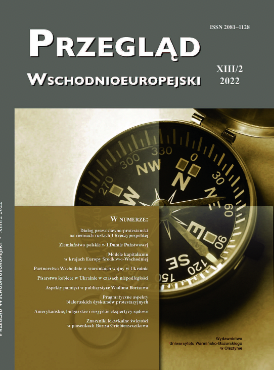Erotic images and motives as a broadcast of the dominant social status (Based on the “Kazakh Erotic Novel” by Berik Dzhilkibaev)
Erotic images and motives as a broadcast of the dominant social status (Based on the “Kazakh Erotic Novel” by Berik Dzhilkibaev)
Author(s): Ludmila Safronova, Aida NurbayevaSubject(s): Language and Literature Studies, Studies of Literature, Sociology of Literature
Published by: Wydawnictwo Uniwersytetu Warmińsko-Mazurskiego w Olsztynie
Keywords: rite of passage; genesis, archetypes; image of the enemy; totemism
Summary/Abstract: In the time leading up to and immediately following the collapse of the USSR, processes of national self-identification in the formerly Soviet republics were revived anew. Ideologues and culture workers mined the distant past for the raw materials with which to re-activate new forms of national identity, and also to distance themselves from the traumas of imperialism. Written and published in the midst of these processes, Berik Dzilkibayev’s 2001 work Kazakh Erotic Novel is something of a mythological text, with ritual elements symbolizing the constant evolution of the fate of nations. This article analyzes Kazakh Erotic Novel from the perspective of psychoanalytic and cognitive literary criticism, while also situating the work historically in post-independence Kazakhstan. The novel narrates the emergence of the newly-independent Kazakh state, with its heightened energy potential, onto the world stage, while simultaneously exploring the act of returning to one’s roots – to the origins of one’s ethnic group – by replicating the act of creation of a society and its accompanying sovereignty. To broadcast the competitiveness of a young Kazakh country on the world stage, the author uses erotic images and motives that have an increased aggressive potential. In Dzilkibayev’s novel the image of the enemy, the hated Soviet Empire, which served as a unifying force for the Kazakhs, takes on the form of another opponent – the West – which is presented as fundamentally opposed to an imagined Eastern mentality. This difference is attributed to structural differences between Western monotheism and Tengrism, the animist religion of the Kazakhs, which took on renewed significance in the post-Soviet era.
Journal: Przegląd Wschodnioeuropejski
- Issue Year: XIII/2022
- Issue No: 2
- Page Range: 285-294
- Page Count: 10
- Language: English

